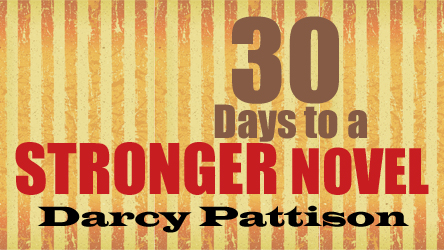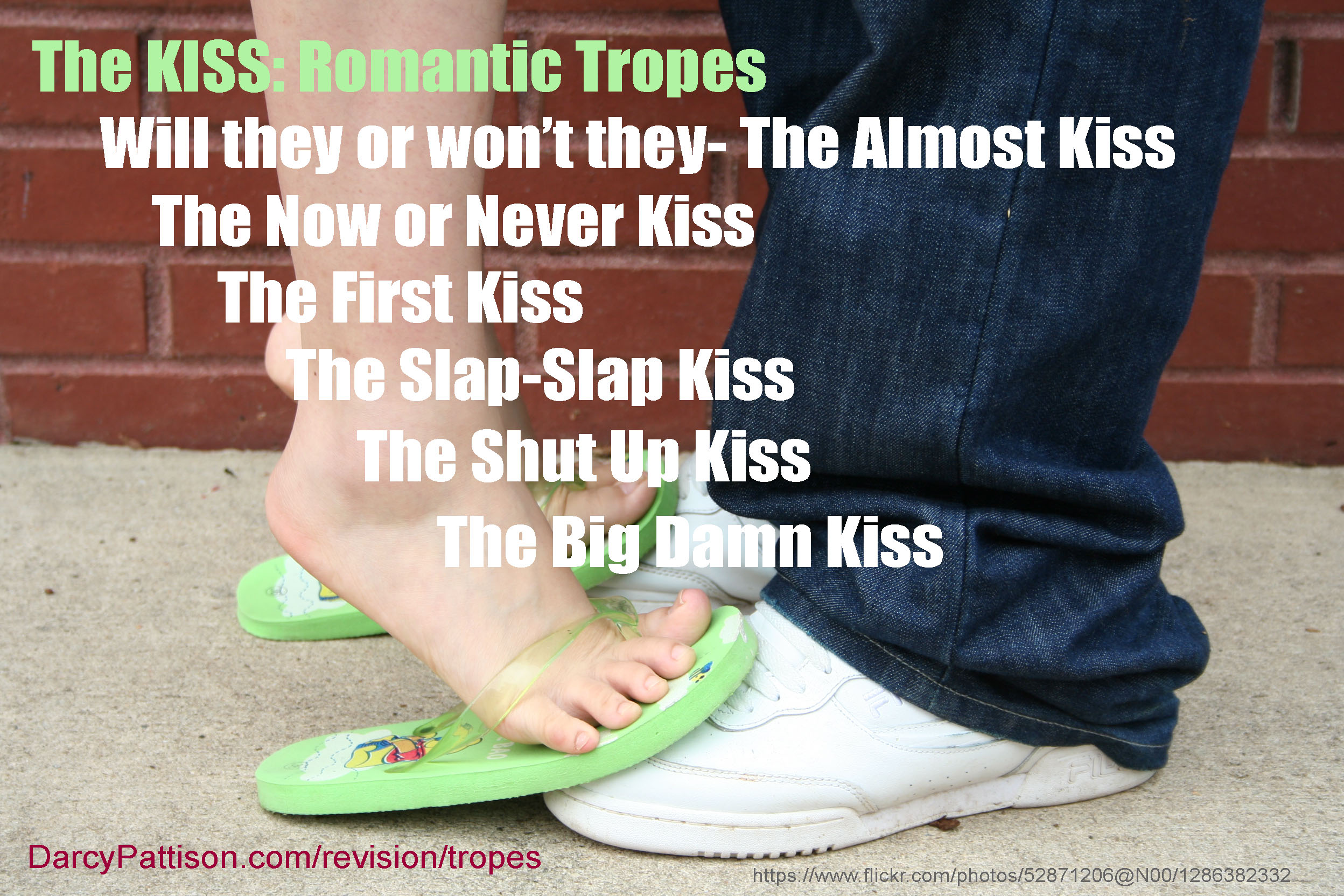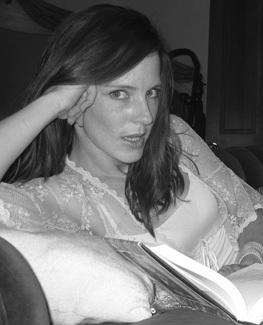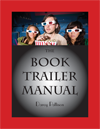30 Days to a Stronger Novel Online Video Course

I confess: I love a good cliche or trope.
A cliche is a phrase or expression that has been used so often that it is no longer original or interesting.
A trope is a common or overused theme or device, as in the usual horror movie tropes.
I’m in the middle of plotting a massive 3-book story and I need all the help I can get. Here’s the problem: what happens next?
No, let me rephrase: what could possibly happen next?
Sometimes, I just need to know possibilities, or what a story typically does at a particular stage. What are the possibilities? Is this a place for a murder, a confession, a love scene, or a time to gather information?
Literary folk say that there are only a limited number of stories in the world. Depending on who you talk with, there might be just two stories: a character leaves town, or a stranger comes to town. Others say there are up to 32 plots. I’ve written about 29 plot templates before. And it helps immensely to narrow down the choices.
But that’s on the level of an outline. Now that I’m deep into deciding on scenes, my imagination comes up short.
Enter tropes. A trope is a common theme, something that’s been done before. That doesn’t scare me away, because it’s the same as the variety of themes. Every story is a cliche, trope or template in many ways. It’s all in how you TELL that story. The beauty is in the particulars.
Romantic Subplot

My story needs a romantic subplot. I know the basics.
Act 1: Boy Meets Girl/Girl Meets Boy
Act 2: Boy and Girl Fight or are otherwise kept apart.
Act 3: Boy and Girl get together.
But what else? What is possible at each stage?
I turned to TVTROPES.org for help. Their site is a wiki that list all sorts of tropes. The Romantic Arc Tropes list was helpful because it listed typical things that happen at every stage of a romantic relationship.
For example, a story might start with this trope/subtropes:
Love Before First Sight
- Because Destiny Says So
- Childhood Marriage Promise
- Red String of Fate
- Girl of My Dreams
- New Old Flame
Each of the tropes listed has its own wiki page, which explains the trope in detail. Particularly valuable are the examples drawn from traditional literature, manga, comic books, fanfics, films, live-action TV, professional wrestling, table top games, theater, video games, webcomics, western animation, real life and more. It’s a treasure trove of examples of the POSSIBILITIES of a particular stage of a relationship.
In fact, I used this romance arc by choosing one trope from each stage of a relationship and slotting that into my story.
Place Holders
Are you afraid that my story will be trite and boring? I’m not. I know that this is a trope and therefore, I must transform it in the storytelling phase of the project. Right now, though, this trope acts as a place holder, something that indicates approximately what will happen in this spot of the story, but not exactly. The nuances that make it fresh await the actual writing.
Using tropes to hold a place with something reasonable makes the plotting easier. I’m loving this help in plotting.
Here are some Arcs to get you started. Be warned: this is a massive wiki and it’s easy to get lost in it. Know what you are looking for and get it/get out.

Follow our Pinterest Boards
Guest Post by Melissa Donovan
When I first learned about alliteration in a writing class, I couldn’t believe there was a word for it. I used it in my poetry all the time! Then I learned about anastrophe and deus ex machina and I began to discover a whole world of literary devices and techniques.
Alliteration is the repetition of initial consonant sounds of accented syllables in a phrase: dancing dragons.
I discovered literary techniques that I’d seen in storytelling but hadn’t used in my own work. For example, anastrophe is when the usual word order of a sentence or phrase is reversed. One of the most famous characters in the movies speaks almost exclusively in anastrophe: Yoda doesn’t ask “Are you ready?” He says, “Ready are you?”
 There were also literary devices that I’d neither noticed nor used. Deus ex machina is when a character or event is suddenly introduced in a narrative for convenience. For example, when all the main characters are trapped and some long-lost cousin who has never been mentioned suddenly appears and rescues them, this is deus ex machina, and it’s usually seen as a cheap way to resolve a sticky situation.
There were also literary devices that I’d neither noticed nor used. Deus ex machina is when a character or event is suddenly introduced in a narrative for convenience. For example, when all the main characters are trapped and some long-lost cousin who has never been mentioned suddenly appears and rescues them, this is deus ex machina, and it’s usually seen as a cheap way to resolve a sticky situation.
What Are Literary Devices and Techniques?
So what are literary devices and what applications do they have for writers?
Wikipedia defines a literary device as follows: “A literary technique (also known as literary device) is any standardized method an author uses to convey his or her message.” According to Wikipedia, this can include foreshadowing, flashbacks, and plot twists, things we all recognize as elements of storytelling.
I’ve found some resources that make a distinction between storytelling techniques, which deal with the structure of a story, and language techniques, which deal with how we choose and use words.
Understanding and Identifying Literary Devices and Technique
Have you ever come across a word, phrase, or sentence that mesmerized you, but you couldn’t figure out why? It might have been a line of dialogue that stuck with you or a compelling scene in a story. You know there’s a reason it was so effective but you can’t put your finger on it.
In these cases, there’s a good chance a literary device or technique is at play. And if you can identify these devices and techniques, you’ll gain a better understanding of how to make the best possible decisions in your own writing.
For example, we all know there are a dozen ways to write a sentence. If we’re trying to choose the right word for a sentence and there are several to choose from, we might make our decision based on a literary device.
Let’s look at an example. In the sentences below, would you choose the word store or market?
I have to stop by the store.
I have to stop by the market.
I would probably choose store because of the alliteration that occurs with the words stop and store.
While this is something a lot of writers do naturally—choose a word because it’s the one that sounds the best—it’s immensely helpful to have a more concrete reason, to know that you’re choosing a phrase because it applies alliteration rather than “just because it sounds good.”
When we adopt literary devices and techniques into our vocabularies, we can talk about writing, language, and story more efficiently and intelligently.
Using Literary Devices in Your Work
Let’s say you’re working on a novel and trying to polish a sentence that’s giving you trouble. You’re looking for the right word—the perfect word. If you have studied literary devices, then they are at your disposal and can help you make smarter choices about which words and phrases to use.
Literary techniques can also be immensely helpful in storytelling. When I’m working on a story and get stuck, I often turn to a list of storytelling techniques to see if any of those techniques could help me get unstuck. I almost always find a solution, something that propels me past whatever obstacle I’m facing.
Literary devices and techniques are valuable tools that we can use to better understand literature. By applying these concepts to our own writing projects, we can strengthen our work and make it more compelling.
READ MORE
Fiction Notes has posted before on How to Use Words: 8 Literary Devices, How to Arrange Words: 20 Literary Devices and How Winston Churchill Used Literary Devices. (That’s 28 literary devices to study and use in your next piece of writing!)
 About the Author: Melissa Donovan is the founder and editor of Writing Forward, a blog packed with creative writing tips and ideas. She has also authored a book of creative writing exercises and works as a web designer and copywriter.
About the Author: Melissa Donovan is the founder and editor of Writing Forward, a blog packed with creative writing tips and ideas. She has also authored a book of creative writing exercises and works as a web designer and copywriter.

Random Acts of Publicity DISCOUNT:

$10 OFF The Book Trailer Manual.
Use discount code: RAP2011
http://booktrailermanual.com/manual
Voice begins with the right choice of words

Word choices matter!
Each story or novel has its own diction, or the group of words that could be used for this story. For example, a historical fiction would have different word choices than a romantic comedy. Of course, there’s lots of overlap, but each story has certain words that you would say are inappropriate or are exactly right. In other words, the story is a context for making choices; and each choice will affect the overall context.
- Word origins can make a difference: fire is a strong Anglo-Saxon word, while inferno is a Latin-based word.
- Length or syllable count matter: fire is single syllable, while inferno has three syllables.
- The connotations of words matter. Does inferno carry connotations of hell? While fire makes you think of a cozy campfire? Connotations can be personal, but they also are cultural and these nuances matter.
- The formality of words, from formal to informal, can change voice.
- Progressions–for example, comparative to superlative–also affect voice.
- Jargon is the specialized vocabulary for a subject: for example, in baseball, you would talk about steals, earned runs and RBIs. Slang is contemporary language that means something to today’s audience only.
Words That Mean Something Else
Classic rhetoric discusses tropes, or the ways that words are used. Sometimes we call this figurative language, but it’s mostly how the word is used. Here are some common tropes.
- Metaphor/Simile: Two unlike things are said to be alike. The comparison is implied for a metaphor, but explicit for a simile.
Ex. Eating, he was a pig.
He ate like a pig.
- Synecdoche: Part stand for the whole.
Ex. He’s in trouble with the law. (Law stands for police or legal system.)
- Syllepsis: Use of one verb that is understood differently in relation to two or more objects.
Ex. His boat and his dreams sank.
-
Anthimeria: One part of speech is exchanged for another.
Ex. They enrolled in parenting class. (Parent is a noun used as an adjective.)
- Periphrasis: Substitution of one or more descriptive words for a proper name.
Ex. Blue-Eyes can croon a great tune.
- Personification: Attribution of human qualities to inanimate objects or abstractions.
Ex. No one, not even rain, has such small hands. (e.e. cummings)
- Litotes: Use of understatement to intensify an idea. It usually involves denying the contrary.
Ex. It isn’t very serious. I have this tiny little tumor on the brain. —J.D. Salinger, The Catcher in the Rye
- Oxymoron: Juxtaposition of two contradictory words.
Ex. To win is to lose.









